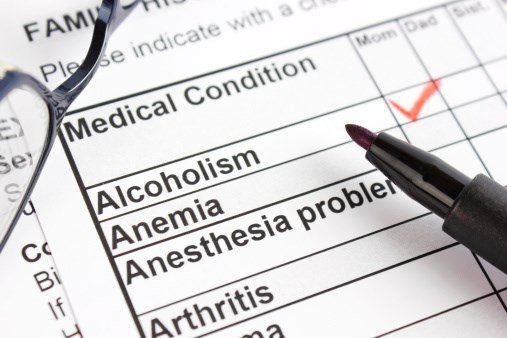KAMSACK - At the Parkland College Kamsack campus, a number of community-based focus groups have been spearheaded by counsellor, Sophia Thomas and program coordinator, Gwen Machnee in effort to assemble a grant application through the Saskatchewan Health and Research Foundation Solutions Program.
Thomas explained that the grant proposal would be designed based on feedback from those who have lived or are living with the experience of addiction.
In association with SIGN Positive Impact, and a number of community partners, the prospective grant would help finance a two-year project that aims to help combat addiction as a health concern as well as identify and address barriers in the recovery journey.
“We want to encourage people to better understand the stigma of addiction,” explained Thomas, who is currently working on a Master’s degree in Social Work. “The first step is to educate people that addiction is not a choice. Those who suffer from addiction continue to experience discrimination and the general lack of understanding in the current social work system has caused a lot of harm.”
Thomas, who grew up in Kamsack and now lives in Yorkton, explained that her decision to pursue a career in mental health recovery stems from a strong desire to promote positive change in the community she was raised in.
“I have seen so much preventable loss,” said Thomas. “The last residential school closed in 1996 – the year I was born. It has resulted in devastating trauma. And I have personally experienced the grip of addiction, how stressful it can be living in a rural community, and how it can take a toll on our mental health. It’s not uncommon for children growing up in small towns to start experimenting with drugs and alcohol at the ages of 12 or 13.”
In assembling the grant application, Thomas and Machnee have reached out for community guidance, asking those who have lived through the experience of addiction to help identify what is missing on their road to recovery, how COVID has impacted them, and what new resources could potentially be of help.
If awarded, the grant would provide $150,000 to be spread out over a two-year term. During the focus group meetings in Kamsack, community members who live or have lived with addiction were invited to fill out a voluntary questionnaire that outlined potential project routes. They were also asked to rate or comment on what programming aspects they would find most effective in their recovery journey.
A goal was defined to increase support options in the community at a low cost and develop a sustainable action plan that could potentially extend collaboration of support options in the community beyond the life of the project.
The proposed idea consists of a two-year education/workshop/support program led by post-secondary practicum students and their supervisors in collaboration with SIGN Positive Impact and community peers/volunteers.
Over this two-year period, the project would involve designing and delivering workshops related to the impact of addiction. These workshops would focus on a variety of topics such as: education, support, harm reduction and recovery strategies. The programming would be in collaboration with the already established supports in the community and fill gaps where there is a need. Each workshop would involve a ‘takeaway’ to provide participants with a new skill. Facilitators would aim to work with the community on transportation and accessibility to/from this program.
Workshops could potentially focus on: harm reduction/safe injection, meet and greet supports in the community, removing the stigma of addiction, working through shame, winter clothing drives, financial literacy, grief and loss support, Alcoholics Anonymous and Narcotic Anonymous support groups, food drives, healthy family dynamics, art and hobby development, and family fun days.
SIGN Positive Impact
SIGN Positive Impact (formerly SIGN Outreach) has been working in the Kamsack area since 2016 working with public health to address the social barriers many people face when living with addictions and subsequent communicable diseases. This includes anything from helping to navigate the system to apply for social assistance, file taxes, obtain identification or access supports including food security, safe housing, training opportunities, etc. Additionally Candice Nelson, the Impact Social Worker is involved in community education and advocacy opportunities. Positive Impact’s partnership with Parkland College has been a natural fit with Parkland taking the academic lead and Positive Impact providing feedback from the front lines.




